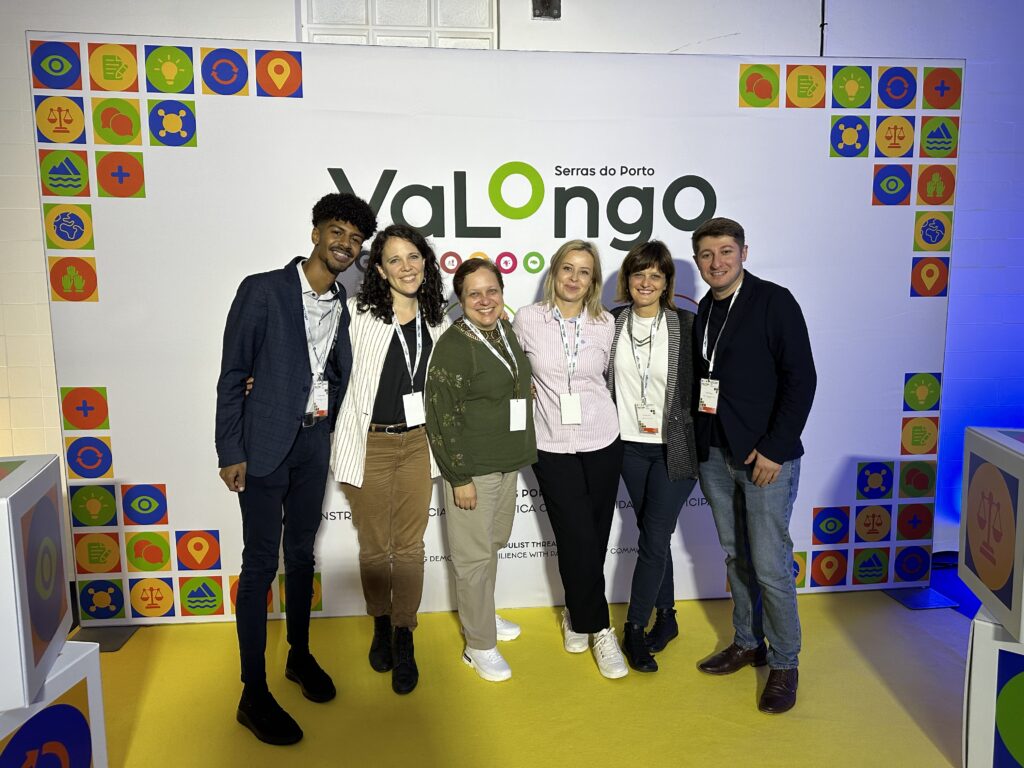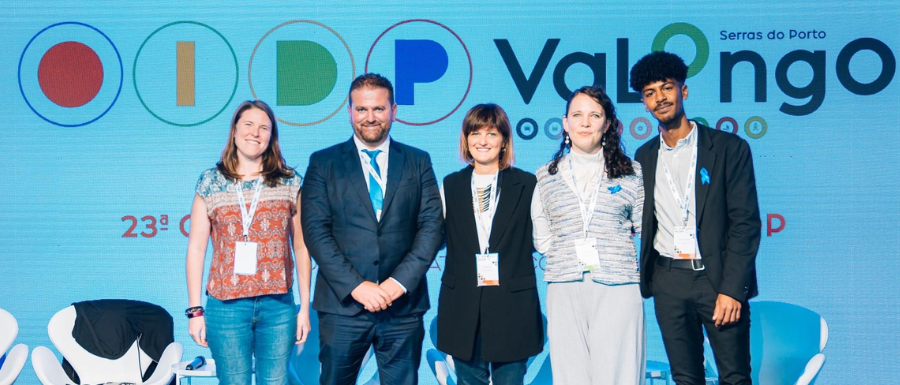As part of the International Conference of the International Observatory for Participatory Democracy (IOPD) under the theme “Populist Threats: Building Democratic Resilience with Participatory Communities”, ALDA, the European Association for Local Democracy organised an interesting panel discussion on “Fostering Democratic Participation and Resilience for Migrants and Community Integration: Advocacy and Combating Misinformation in Post-EU Election Europe.” The event was held in Valongo, Portugal, on October 19, 2024, in collaboration with the Anna Lindh Foundation.
Objectives of the Panel
Moderated by ALDA Migration hub coordinators Mohammed Mustafa and Giulia Sostero, the panel featured three expert speakers who each offered unique perspectives on strengthening democratic resilience and fostering migrant integration:
- Promoting Migrant Participation in Democratic Processes
Maddalena Alberti, Governing Board Member of ALDA and Director of ADL Zavidovici Association, emphasized the need to improve data collection on migrant participation in democratic processes, particularly during EU elections. Alberti highlighted that while second-generation migrants are more involved due to stronger language skills and education, challenges such as citizenship restrictions and limited municipal resources continue to hinder their civic engagement. - Cultural Heritage as a Tool for Integration
Isber Sabrine, President of Heritage for Peace and a member of the Anna Lindh Foundation, discussed how cultural heritage initiatives can foster integration, particularly for refugees, by helping them feel connected to their new environments. He underlined the need for programs linking cultural heritage to mental health and community-building for migrants. - Advocacy and Community-Led Initiatives
Monica Corrigan, National Coordinator of the Anna Lindh Foundation in Portugal and President of AEQUALITAS, focused on the need to combat misinformation affecting migrant integration. She highlighted advocacy efforts, capacity-building programs, and legal aid initiatives aimed at dispelling harmful narratives and stressed the importance of collaboration among local governments, NGOs, and migrant communities to foster positive, accurate narratives around migration.
During the Q&A session, the panellists addressed various challenges, including language barriers, climate migration, and the need to engage migrants in public consultations. The audience underscored that misinformation, fear of discrimination, and legal constraints are primary obstacles to migrant engagement in democratic processes.
The conference included a range of thematic panels addressing participatory democracy, from local environmental issues to participatory budgeting, adult education in democratic tools, and increasing youth engagement in civic activities. Among the featured speakers, Anzhelika Pylypenko, a delegate from the Local Democracy Agency of the Dnipropetrovsk Region, shared insights on “Sustainable Local Democracy: Participatory Governance in Eastern Europe in the Face of Challenges.” Alongside her colleagues Viorica Tudos (ALDA), Irakli Jgarkava (ALDA), and Lucine Alexandrian (LDA Armenia), she discussed the challenges faced by civil societies in Eastern Europe in exercising their rights within the framework of participatory democracy. Ms. Pylypenko highlighted the achievements of Ukrainian civil society during the ongoing conflict, especially the high level of self-organisation demonstrated at the outset of hostilities. She stressed the importance of supporting community-based organisations, such as condominiums, that use direct democracy tools to influence local governance. The audience engaged in a lively discussion on strategies for involving youth in civic activities, recognising the crucial role of young people in shaping the future.
The ALDA panel concluded with a call to action for continued advocacy, emphasising that fostering migrant participation and combating misinformation are essential steps in building democratic resilience. Through inclusive policies and intercultural dialogue, ALDA and its partners aim to cultivate a Europe where migrants are actively engaged in democratic communities.
For more information on ALDA’s work and initiatives in fostering democratic participation for migrant communities visit the page dedicated to the Migration HUB!

